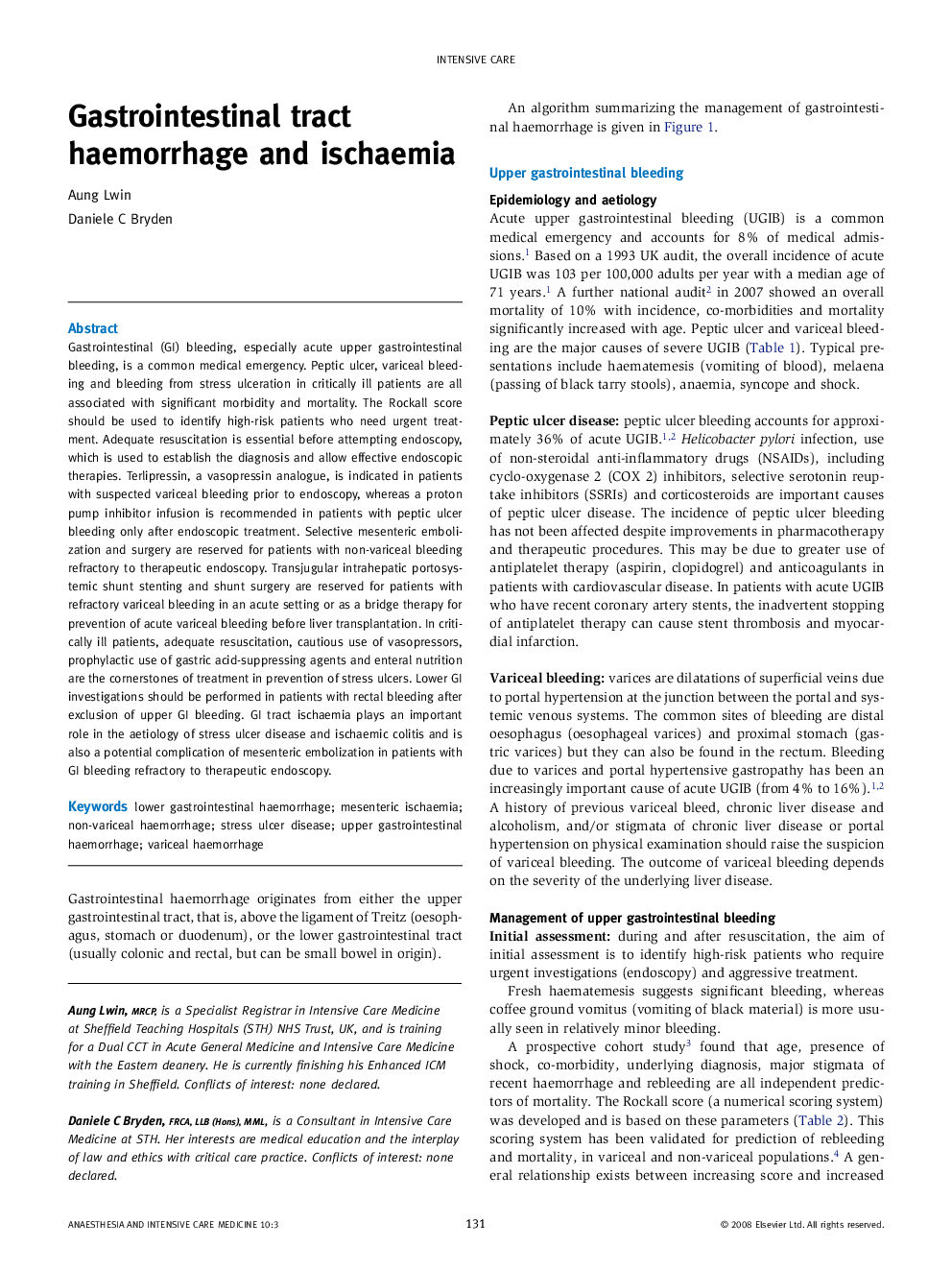| Article ID | Journal | Published Year | Pages | File Type |
|---|---|---|---|---|
| 2743264 | Anaesthesia & Intensive Care Medicine | 2009 | 6 Pages |
Gastrointestinal (GI) bleeding, especially acute upper gastrointestinal bleeding, is a common medical emergency. Peptic ulcer, variceal bleeding and bleeding from stress ulceration in critically ill patients are all associated with significant morbidity and mortality. The Rockall score should be used to identify high-risk patients who need urgent treatment. Adequate resuscitation is essential before attempting endoscopy, which is used to establish the diagnosis and allow effective endoscopic therapies. Terlipressin, a vasopressin analogue, is indicated in patients with suspected variceal bleeding prior to endoscopy, whereas a proton pump inhibitor infusion is recommended in patients with peptic ulcer bleeding only after endoscopic treatment. Selective mesenteric embolization and surgery are reserved for patients with non-variceal bleeding refractory to therapeutic endoscopy. Transjugular intrahepatic portosystemic shunt stenting and shunt surgery are reserved for patients with refractory variceal bleeding in an acute setting or as a bridge therapy for prevention of acute variceal bleeding before liver transplantation. In critically ill patients, adequate resuscitation, cautious use of vasopressors, prophylactic use of gastric acid-suppressing agents and enteral nutrition are the cornerstones of treatment in prevention of stress ulcers. Lower GI investigations should be performed in patients with rectal bleeding after exclusion of upper GI bleeding. GI tract ischaemia plays an important role in the aetiology of stress ulcer disease and ischaemic colitis and is also a potential complication of mesenteric embolization in patients with GI bleeding refractory to therapeutic endoscopy.
